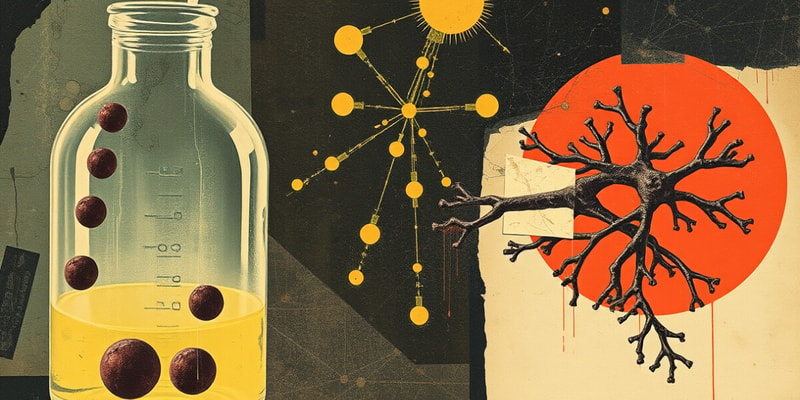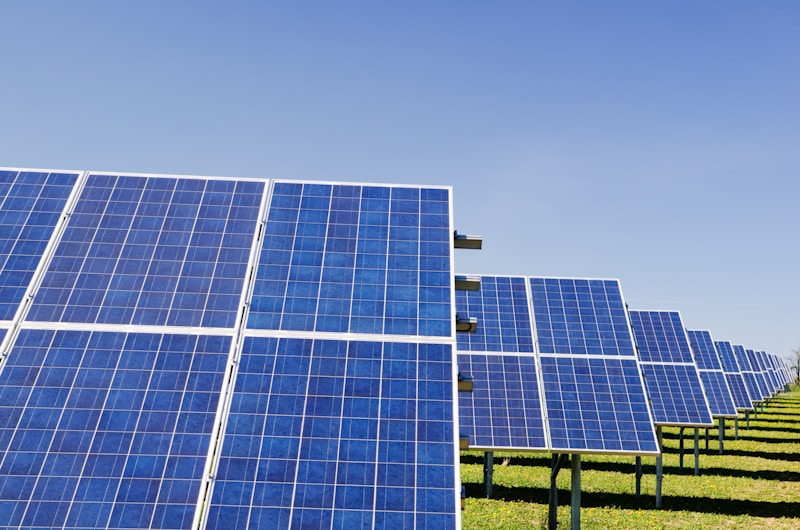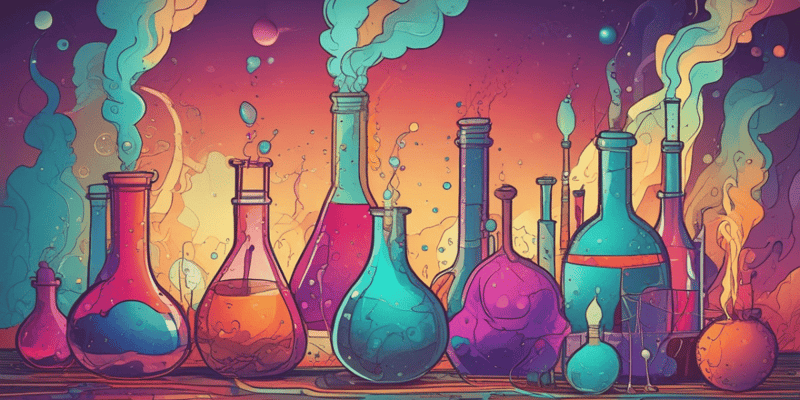Questions and Answers
What is the role of enzymes in chemical reactions?
Which of the following correctly describes the difference between endothermic and exothermic reactions?
What are the building blocks of macromolecules known as?
What is a characteristic of lipids?
Signup and view all the answers
What term is used to refer to reactants in enzyme-catalyzed reactions?
Signup and view all the answers
Study Notes
Chemical Reactions
- Reactants are the starting substances in a chemical reaction, while products are the substances formed as a result.
- Examples of chemical reactions include the reaction between Coke and Mentos, volcanic eruptions, and the synthesis of mustard gas.
Energy in Chemical Compounds
- Energy is stored within the chemical bonds of compounds.
Types of Reactions
- Endothermic reactions absorb energy, often resulting in a temperature decrease (cold).
- Exothermic reactions release energy, typically causing an increase in temperature (heat).
Role of Enzymes
- Enzymes accelerate chemical reactions by lowering the activation energy required for the reaction to occur.
- Reactants in an enzyme-catalyzed reaction are referred to as substrates.
Macromolecules
- Four main types of macromolecules:
- Carbohydrates: Serve as the primary fuel source for most living organisms, typically composed of monosaccharides.
- Lipids: Serve various functions, are hydrophobic, and do not have distinct monomers; essential for building cell membranes.
- Proteins: Fundamental components of all living organisms, responsible for a vast range of functions.
- Nucleic Acids: Molecules that store, transmit, and express genetic information.
Monomers and Polymers
- Monomers are single units that join together to form polymers, which are larger molecules comprised of these repeating units.
Studying That Suits You
Use AI to generate personalized quizzes and flashcards to suit your learning preferences.
Description
Dive into the fascinating world of chemical reactions with this quiz. Explore the roles of reactants and products, understand energy changes, and learn about the influence of enzymes on reaction rates. Test your knowledge on various examples and concepts related to chemistry.




